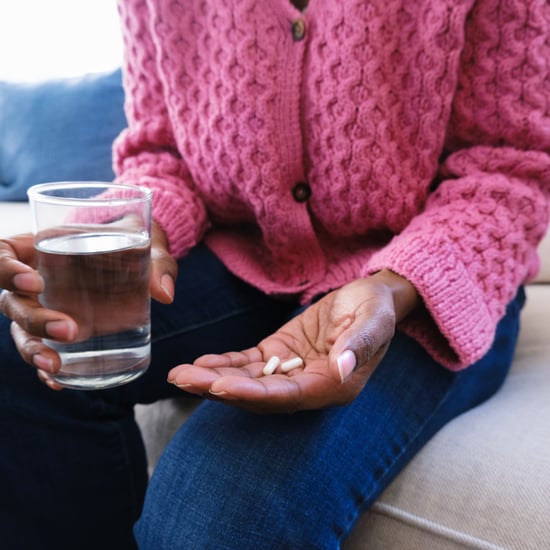6 Tips For a Healthy Bladder
6 Expert Tips For Keeping Your Bladder Healthy

When it comes to taking care of your bladder, it's possible you may not know what steps to take. But just like other organs in your body, there are things you can do on a regular basis (and things you can avoid) to help prioritise and support its health and proper functioning.
Ahead, six bladder health tips from medical experts, including why holding it when you have to pee isn't recommended, and info on some bladder symptoms to bring up with your doctor.
Avoid Tobacco Use
Robert Mordkin, MD, chief medical officer for LetsGetChecked and chief of urology at Virginia Hospital Centre, says that tobacco use is the number one worst thing for bladder health, as is it the leading cause of bladder cancer. According to the Journal of the American Medical Association, smoking is the cause of about half female bladder cancer cases.
Listen to Your Body
Raise your hand if you've ever felt the need to pee at an inopportune time, like when you were in the middle of a highly intense "Succession" episode and tempted to just "hold it" for a while longer.
Turns out, getting into a habit of avoiding trips to the bathroom isn't recommended. Instead, to keep your bladder healthy, Dr. Mordkin says you should listen to your body's signals that it's time to urinate.
"If someone intentionally delays voiding in a repeated fashion, they can actually inadvertently overstretch their bladder to the point where it will no longer work," he explains.
So when your body is giving you a head's up that it's time to pee, don't ignore it.
Stay Hydrated by Drinking Water
Here's yet another reason to keep your favourite water bottle filled up and nearby. According to Aleece Fosnight, a board-certified physician assistant who specialises in sexual medicine and medical advisor to Aeroflow Urology, not drinking enough water can lead to dehydration, which can contribute to poor bladder and kidney health.
"Dehydration causes increased concentration of waste products in the urine that then irritate the lining of the bladder," Fosnight says. "This irritation can lead to painful bladder syndrome or a condition called interstitial cystitis. This condition causes urinary urgency, frequency, and pelvic pain. Not drinking enough water can also lead to kidney failure, which has a direct impact on the bladder, causing more waste products to be dumped into the urine, therefore causing more irritation."
Therefore, if you're trying to prioritise bladder health, staying hydrated with the help of good ole H2O is key.
As Fosnight further explains, "increasing water helps to dilute the urine, therefore decreasing the irritation and allowing the bladder to function optimally."
Dr. Mordkin mentions that staying hydrated can also help prevent UTIs and kidney stones.
Avoid Constipation
Fosnight mentioned that avoiding constipation is important for bladder health.
She explained that constipation "places excessive amounts of pressure on the bladder and pelvic floor muscles, contributing to weakness and urinary leakage."
While there are many potential reasons why one could be experiencing constipation, not drinking enough water or not eating enough fibre are common culprits.
Avoid Personal Bladder-Irritating Foods and Drinks
According to Fosnight, certain foods and drinks can cause bladder irritation for some. She points to soda, caffeine, citrus, and spicy foods as the main examples.
If you think something in your diet is irritating your bladder, Fosnight recommends starting a food diary to help identify the cause. Once you think you've identified it, try eliminating it from your diet to see if there's improvement.
According to the Cleveland Clinic, some symptoms of bladder irritation include the need to pee more frequently, a strong urge to pee, and pain in the lower abdomen.
Ask Your Healthcare Provider About Kegels
Depending on your bladder symptoms or issues you're currently experiencing or trying to prevent, performing Kegel exercises may help.
"If a person specifically has 'stress incontinence,' properly performing Kegel exercises can help improve their bladders by strengthening the necessary supportive muscles," Dr. Mordkin says.
According to Fosnight, stress incontinence can be defined as the "leakage of urine with stress-induced activities to the abdomen, such as coughing, laughing, exercise, and sneezing," and it usually occurs because of weak pelvic floor muscles and urethral instability.
To ensure Kegels are right for you, reach out to your healthcare provider or a trained pelvic floor specialist. Fosnight mentions that Kegels can help if you have weak pelvic floor muscles, but they could worsen urinary symptoms for those who have high tone muscles.
Bladder Signs and Symptoms to Bring Up With Your Doctor
If you have any questions about your bladder or your health, never hesitate to reach out to your healthcare provider.
Dr. Mordkin says that anyone who sees blood in their urine should consult with a urologist. "Other reasons to seek evaluation could include recurrent infections, pain, leakage, or unexplained urinary frequency or urgency," he adds.
As for what is considered peeing too much? "Generally having to urinate more than every two to three hours and having to be up more than once or twice per night is considered abnormal, particularly if it is bothersome to the individual," Dr. Mordkin says.








